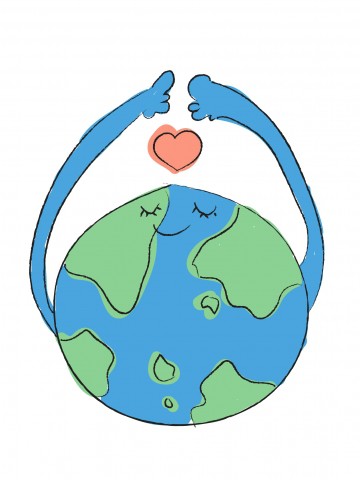The University of Saskatchewan’s annual Campus Sustainability Week is dedicated to showcasing the various environmentally friendly initiatives around campus, and this year, it includes the United Nations Sustainable Development Goals Youth Training seminar on Oct. 12.

The U of S Students’ Union Sustainability Committee, USask Model United Nations and Office of Sustainability are working in co-operation with the Foundation for Environmental Stewardship to encourage students to contribute to international efforts in sustainability. The event will give students the chance to learn about the 17 UN Sustainable Development Goals, or SDGs, which aim to end poverty, protect the planet and ensure prosperous lives for all people within the next 15 years.
Amy Lambert, a fourth-year student in international studies and vice-president finance of USask MUN, discusses how she, as an organizer, hopes this event will positively impact the students who attend it.
“I am hoping that [the event] will make them more informed global citizens… There are students in many colleges and departments, who are interested in working in the fields of sustainability and development, who will benefit from meeting people who are already working in those fields and [from] learning more about what they may be doing in the future,” Lambert said, in an email to the Sheaf.
The seminar will be led by UN officials and student leaders from around the country. The participants will receive a certificate from the FES upon completing the training seminar. The event is open to all, and its primary targets are post-secondary students, but high-school students are also welcome.
The 17 SDGs have 169 targets, which the UN Member States unanimously adopted in 2015, with which they have committed to frame their agendas and political policies over the next 15 years. These goals call for action by all countries, whether they are low-, middle- or high-income, to ensure prosperous lives for their citizens while protecting the planet. Lambert discusses how these goals fit in at a more local level for students living in Saskatchewan.
“Oftentimes, I think people view development as being something that needs to happen overseas and [that] is not relevant in our local communities, but there are people in our province and in our city who are living in poverty or who do not have access to clean water at all times. These are not issues that solely affect the rest of the world,” Lambert said.
Sustainable development is a practice that balances the needs of the present without compromising the ability of future generations to meet their own needs. The targets of the SDGs are built upon the idea that ending poverty must happen in conjunction with strategies that build economic growth and address a range of social needs while also tackling climate change and environmental protection.
At this year’s Campus Sustainability Week, students will have the opportunity to engage with the UN goals and targets to develop a greater understanding of globally sustainable growth. The training seminar will be held on Oct. 12 from 6:30 to 9:30 p.m. in the Education Building on campus. Tickets can be purchased for $25 online at Eventbrite.
Lambert believes that being informed on and interested in the UN SDGs is part of being an engaged and responsible global citizen.
“We are not the sole generation responsible for climate change, but we are the generation who is going to have to deal with its effects,” Lambert said. “The UN SDGs are trying to solve issues like climate change, poverty and lack of access to clean water and education that affect people across the world, as well as people right here in Canada.”
—
Nafisa Islam
Graphic: Lesia Karalash / Graphics Editor
Leave a Reply